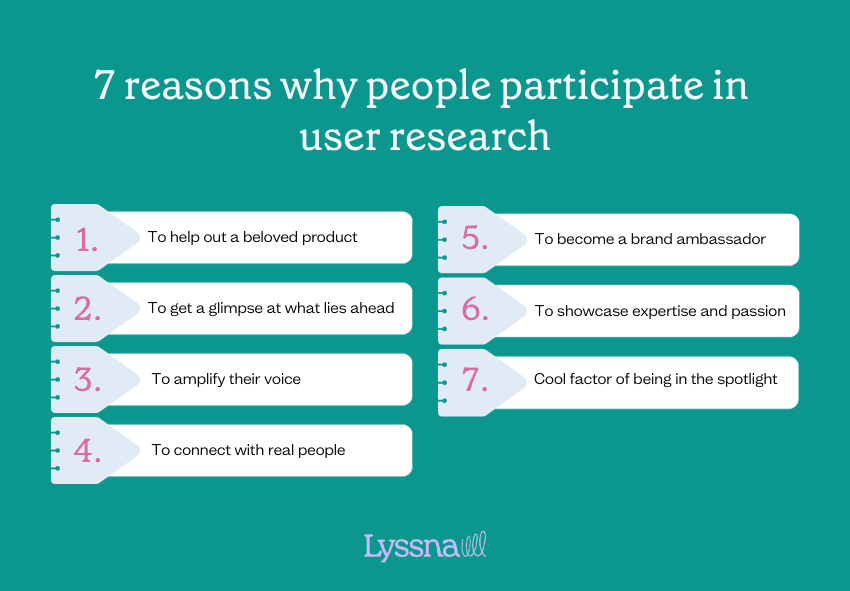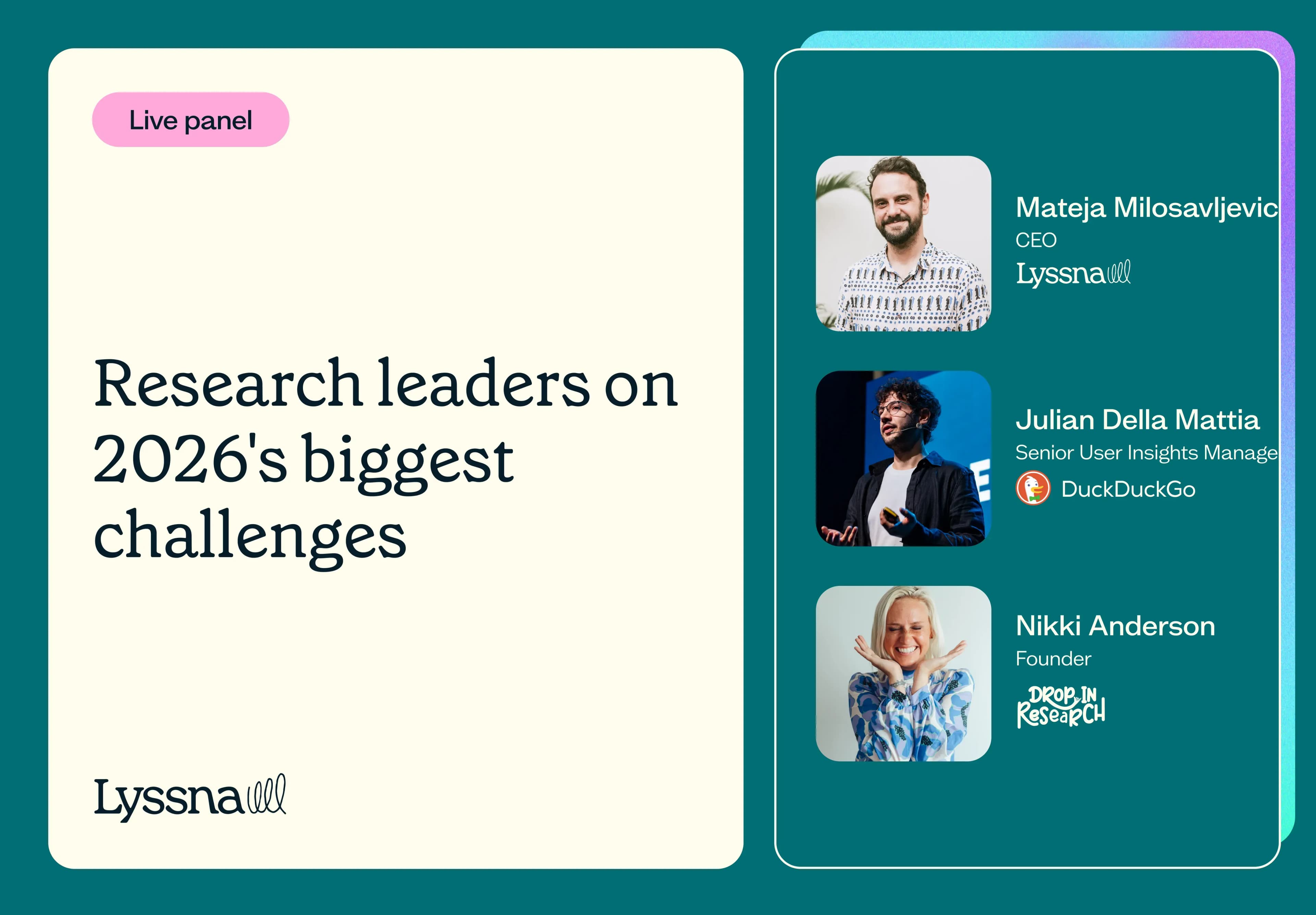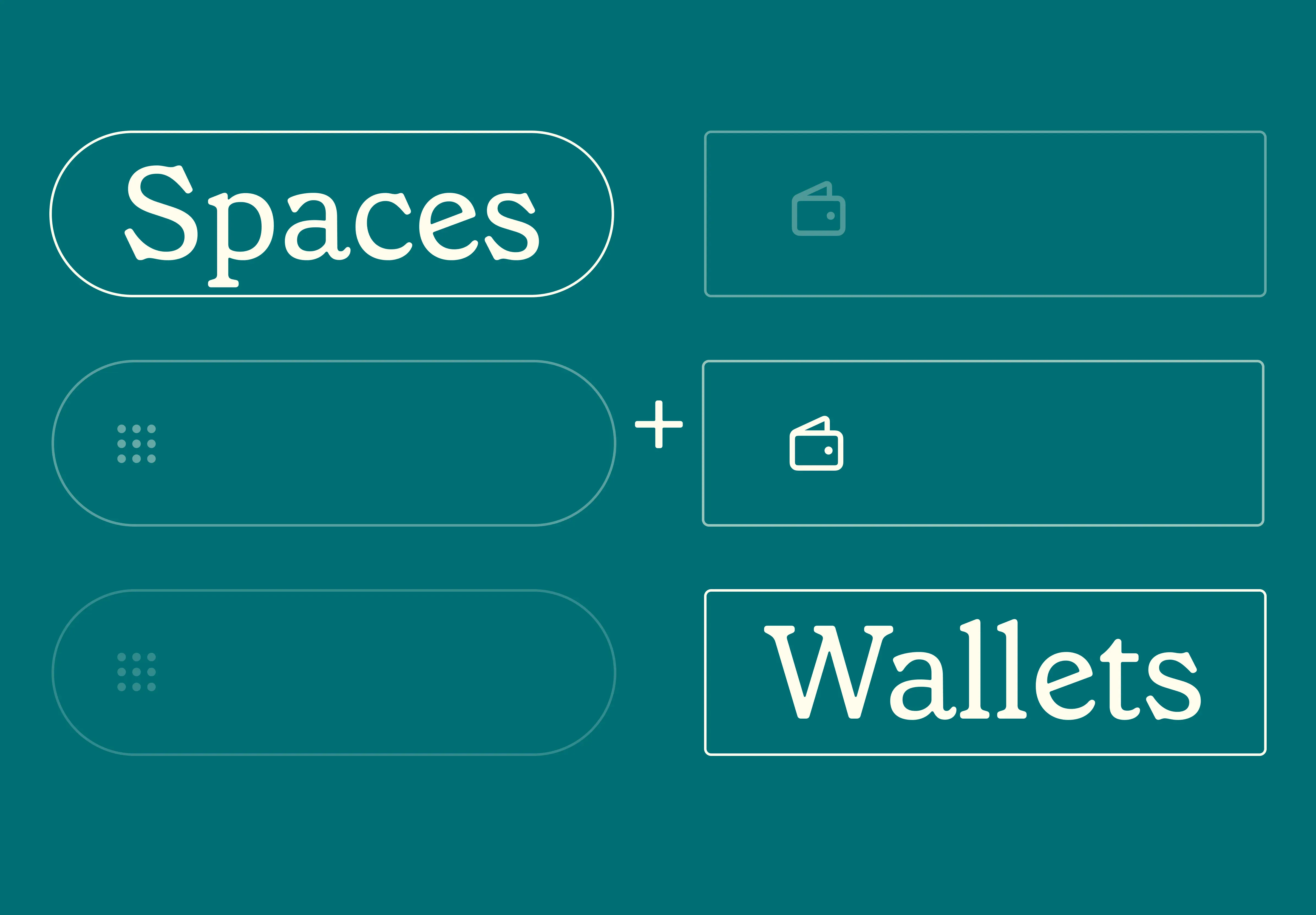17 Nov 2023
|5 min
User research motivations
Explore seven reasons – beyond incentives – why people choose to participate in user research.

As a researcher, the anticipation of engaging with participants is often overwhelming. It's a moment that can result in a cocktail of excitement and anxiety, especially for those who are just starting on their UXR journey.
The prospect of conversing with known or unknown individuals, each with their unique stories, opinions, and experiences, can be intimidating. Questions like, "Will they be open to sharing their thoughts?" or "What if I ask the wrong questions?" often flutter through the minds of newer researchers. I field these types of questions from my students regularly.
That said, I’ve also learned that understanding why participants take part in user research can be incredibly valuable. This understanding can put newer researchers at ease and boost their confidence.
When I began conducting user research, I started asking participants why they were interested in taking part in the study we were focused on. I was genuinely curious to find out what motivated them to get involved. Here’s a summary of the top seven responses, and, somewhat surprisingly, they don't include receiving incentives!

1. To help out a beloved product
Many participants have genuine affection for brands, products, or services. They often participate in research because they want to contribute to the enhancement of something they enjoy or love. It's their way of giving back.
2. To get a glimpse at what lies ahead
Curiosity is a powerful motivator. Some participants are drawn to the prospect of getting a sneak peek into what the future may hold for their cherished brand, product, or service. The unknown is alluring and they enjoy the excitement of being on the cutting edge.

3. To amplify their voice
Other participants relish the opportunity to have their voices heard, whether it's to vent their frustrations or sing praises. They want to share their story. Participating in research is a way for them to share these experiences, knowing that their feedback may result in meaningful change.
4. To connect with real people
Aspiration to connect with a person behind the brand or product, and to form a non-digital bond, is another common motivator. There can be a profound human connection formed from speaking with a real person. It's more than just data; it's a meaningful conversation.

5. To become a brand ambassador
For others, participation is a chance to become a brand ambassador. They take pride in their association with a company or brand that values their opinions, and they want to advocate for them. It's a testament to their dedication and passion for the brand.
6. To showcase expertise and passion
A number of participants are driven by a desire to showcase their expertise and passion for the specific topic. They relish the opportunity to demonstrate their knowledge and contribute to the development of something they deeply care about.
7. The cool factor of being in the spotlight
The final common motivator for participants to get involved with user research is the “coolness” factor that can result from being part of a research initiative. They feel it's validation that their input matters, and that they’re part of a select group of individuals helping to shape the future.
Understanding the motivations to participate in user research
So, the next time you find yourself with anxiety about speaking to participants, consider the motivations that likely inspired them to take part. It's not just about incentives and feedback to them; it's about being a part of a dynamic and collaborative journey towards building something extraordinary.
Also keep in mind that participants have likely “opted in” to participate in your research. In other words, they’ve chosen to contribute their time. They are there because they choose to be there.
I hope these reasons why participants contribute to applied research studies will ease any jitters you may experience.
Best of luck – you’ve got this!
Your go-to user research platform
The best teams use Lyssna so they can deeply understand their audience and move in the right direction — faster.
--
This article was authored by Michele Ronsen, Founder and CEO of Curiosity Tank. Michele is a user research executive, coach and educator. She teaches design and user research to people around the world. Her corporate trainings and workshops are inspired by working with Fortune 500s and start-ups for more than twenty years. Fuel Your Curiosity is her award-winning, free, user-research newsletter. In 2020, LinkedIn honored Michele with a TopVoices award in the Technology category. She is the first and only researcher to receive this award.
You may also like these articles


Try for free today
Join over 320,000+ marketers, designers, researchers, and product leaders who use Lyssna to make data-driven decisions.
No credit card required





